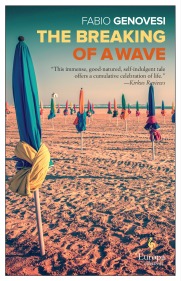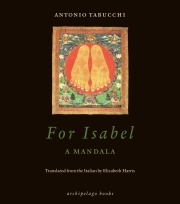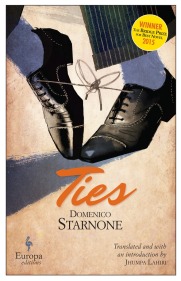September 17, 2018—The American Literary Translators Association (ALTA) is delighted to announce the shortlist for the 2018 Italian Prose in Translation Award. Starting in 2015, the Italian Prose in Translation Award (IPTA) recognizes the importance of contemporary Italian prose (fiction and literary non-fiction) and promotes the translation of Italian works into English. This prize is awarded annually to a translator of a recent work of Italian prose (fiction or literary non-fiction). This year’s judges are Geoffrey Brock, Peter Constantine, and Sarah Stickney.
The award-winning book and translator for 2018 will receive a $5,000 cash prize, and the award will be announced during ALTA’s annual conference, ALTA41: Performance, Props, and Platforms, held this year in Bloomington, IN from October 31 – November 3, 2018. If you can’t join us in person, follow our Twitter (@LitTranslate) and Facebook (www.facebook.com/literarytranslators) for the announcement of the winners!
The 2018 Italian Prose in Translation Award Shortlist (in alphabetical order by title):
 The Breaking of a Wave
The Breaking of a Wave
By Fabio Genovesi
Translated from the Italian by Will Schutt
(Europa Editions)
Fabio Genovesi’s novel, Chi Manda Le Onde, has been skillfully translated into English by Will Schutt under the title The Breaking of a Wave. The sprawling novel with its cast of charming misfits won the Strega Prize for Young Authors in 2015. Marked by irony and tenderness, the story swirls among various perspectives. Luna, the albino teenager, is voiced in the first person, her mother Serena occupies the second person, and Sandro, an untethered bachelor in his 40’s, narrates in third person. These three are surrounded by the many well-drawn inhabitants of their Tuscan beach town, Forte dei Marmi. Indeed the town itself is one of the book’s protagonists. Genovesi describes it with affectionate wit, from the wealth of its Russian and Milanese tourists in summer, to the provincial desolation of its winters. The sea remains present throughout the book both literally and metaphorically in all its immensity. Schutt rises to the challenge of this novel’s intersubjectivity, fluidly transforming its perspectival shifts into English. He deserves particular praise for his dexterous handling of the dialogue, a strong point of Genovesi’s writing. Schutt makes the shifting idiom feel at home in English, and he captures Genovesi’s wonderful ear for, and sympathy toward, those on the edges of society.
![]() Family Lexicon
Family Lexicon
By Natalia Ginzburg
Translated from the Italian by Jenny McPhee
(NYRB Classics)
Jenny McPhee’s pellucid new translation of Natalia Ginzburg’s 1963 masterpiece, Family Lexicon, is the best English version yet of this genre-defying classic. “The places, events, and people in this book are real,” Ginzburg tells us in her famously monitory preface; “I haven’t invented a thing.” And though she calls it “the story of my family” and claims to have written “only what I remember,” she insists we read it “as if it were a novel.” However we read it, Ginzburg herself is often curiously absent, or present only by implication, like a camera’s lens. The book’s greatest achievement may be its complex portrait of her father, which though affectionate is unsparing: the first pages acquaint us with his casually racist lexicon—posing a translation challenge McPhee handles perfectly. A riveting picture also emerges of the community of anti-Fascist intellectuals of which Ginzburg was a part. The lapidary paragraphs on Cesare Pavese, for example, are essential reading, as are the glimpses of her husband, the editor and resistance hero Leone Ginzburg, presented here chiefly as a colleague. The passing mention of his murder exemplifies the book’s formidable emotional and stylistic restraint, a restraint that McPhee’s translation deftly preserves. McPhee also deserves credit for her fine endnotes, which provide useful historical and biographical context.
 For Isabel, A Mandala
For Isabel, A Mandala
By Antonio Tabucchi
Translated from the Italian by Elizabeth Harris
(Archipelago Books)
Translated by Elizabeth Harris, Antonio Tabucchi’s For Isabel, A Mandala leads the reader through a “mandala of consciousness.” This novella is at once a mystery, a magical-realist fairy tale, and a travelogue. As we follow the protagonist in his search for the lost Isabel, we move towards the center of the mystery through the mandala’s concentric circles, meeting strange and intriguing characters who seep out of the past or appear in incongruous haunts around Lisbon and the surrounding territory where the book takes place. Tabucchi creates an intricate web that connects past to present, dream-life to waking. The book is filled with evocative images that seem to float free of mere plot constraints: a string bag of captive frogs let loose in the family garden, a saxophonist in a jazz bar playing to a drinker of absinthe, a single mourner at a faked funeral in a sailor’s chapel by the sea. When asked by a photographer what he is about, the protagonist answers: “It’s simple… to reach consciousness, you photograph reality: you must know what consciousness is.” Harris carries the delicate magic of consciousness from Italian into English with deceptive ease. She works with admirable precision to capture the voices of the different speakers and the details of the shifting context, yet she never sacrifices the dreamy texture of the writing.
 These Possible Lives
These Possible Lives
By Fleur Jaeggy
Translated from the Italian by Minna Zallman Proctor
(New Directions)
Fleur Jaeggy’s These Possible Lives, translated by Minna Zallman Proctor, is a book of three short but labyrinthine biographical pieces that recreate in intricate distilled detail the lives of the British literary giants Thomas De Quincey and John Keats, and the French Symbolist writer Marcel Schwob. Jaeggy, a Swiss author who writes in Italian, is a virtuoso stylist, her prose crossing genres from biographical essay to prose poem to literary criticism. There are few dates and no dry day-to-day facts in these biographies, but unexpected and whimsical details of these men’s lives woven together in surprising configurations. The character portraits are dense and original, each a fascinating study of the inner life of genius. The link between the three biographies is the startling portrayal of the mercurial nature of these men, a compelling study of inspiration and insanity, addiction and death. Minna Zallman Proctor has masterfully recreated the complicated nuance and texture of Fleur Jaeggy’s brilliantly idiosyncratic style. Her translation has captured the complexity and unusual pacing of the prose, which makes this book as remarkable a read in English as it is in Italian.
 Ties
Ties
By Domenico Starnone
Translated from the Italian by Jhumpa Lahiri
(Europa Editions)
Jhumpa Lahiri’s much-discussed love affair with the Italian language has born welcome new fruit: in her debut as a translator, she offers a stylistically and tonally assured version of Domenico Starnone’s harrowing thirteenth novel, Ties, about the effects of an affair on a Neapolitan family. While the book succeeds brilliantly on its own terms, it also teases readers of Elena Ferrante (whose identity has been linked both to Starnone and to his wife, Anita Raja) with a brief opening section that covers territory strikingly similar to that of Ferrante’s The Days of Abandonment: in both books, Neapolitan women who have been left by similar husbands in a similar manner try desperately to come to terms with what has happened. Ties, however, veers into new territory in the second section, which comprises the bulk of this book and which is told in the voice of the husband following a leap in time. (The brief third section focuses on the couple’s two grown children.) The novel, insightfully introduced by Lahiri, is psychologically trenchant, deftly plotted, and full of resonant scenes and surprising revelations. Though long an important figure in contemporary Italian fiction, Starnone has remained obscure in English; Lahiri’s elegant, affecting translation should finally bring him the attention he deserves among anglophone readers.
